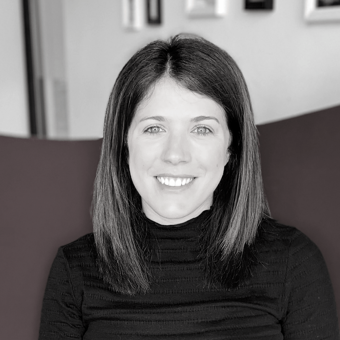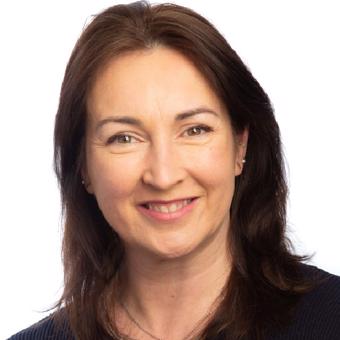Marion Cail - legal counsel, Ramsay Health Care UK...
Can you tell the readers of The Brief a little about Ramsay Health Care?
Ramsay Health Care UK is a leading provider of health care services in England, offering a broad range of services to patients funded by either medical health insurance, the NHS or through self funding. Services range from day case surgery to highly complex surgery, psychiatric care and rehabilitation. Services are offered through our 36 sites which include acute hospitals, day surgery units and three neurological rehabilitation homes.
2014 is a significant year for the Ramsay Group as this year marks fifty years since our chairman, Paul Ramsay, who still takes an active interest in the Ramsay Group and the UK operations, set up the first mental health hospital in Sydney, Australia. Ramsay Health Care is the largest hospital operator in Australia and also has hospitals in France and Indonesia. Recently, we established a joint venture with Sime Darby in Malaysia. We treat over 1.5 million patients each year worldwide. I provide legal advice to the UK Ramsay hospital group which has been established for seven years.
What challenges have you come across in the private health care sector in the last eighteen months and how have you dealt with them?
The last eighteen months have been very interesting in the healthcare arena. During this time the Competition Commission undertook an investigation into the private healthcare market and a great deal of work was undertaken across the business to respond to the queries raised by the Competition Commission.
The investigation was concluded earlier this month and the Competition and Market’s Authority published its final report on measures to increase competition in the private healthcare arena which includes a crackdown on benefits and incentive schemes provided to referring clinicians by some private hospital operators (Ramsay did not engage in this practice) along with measures to increase the availability of information to patients on both consultant fees and the performance of consultants undertaking work in private hospitals. The Competition and Market’s Authority also has been given power to review future arrangements where private hospitals “partner” with the NHS and provide private patient units within a wing of an NHS hospital. If the Competition and Market’s Authority consider that such a unit would substantially lessen competition, it has the power to ban such arrangements.
Separately, The Health and Social Care Act 2012 has also brought about a number of changes including the way in which healthcare is commissioned. It continues to be important to fully understand the implications of the Act as Ramsay provides healthcare services to NHS patients as well as private patients. As an in-house lawyer, it is very important for me to keep abreast of regulatory changes so that I can work with my colleagues to ensure that they know enough to take the business forward without getting too swamped in the detail.
What do you particularly like about working in health care?
I really like being involved in a sector which affects everyone at some point in their lives. Healthcare is a dynamic and changing sector which is evidenced in part by the changes that the Health and Social Care Act has brought with it. It is interesting to see how politics influences the provision of healthcare and to understand the differences between the healthcare provisions in the UK vis a vis those in Europe and beyond. I was never cut out to be a nurse, GP or consultant which is evidenced, in part, from my fear of needles! However, I’d like to think that in some small way the work I do indirectly contributes to the provision of high quality patient focused care provided by Ramsay to its patients.
What do you enjoy about your role as an in house lawyer?
Life as an in-house lawyer is very rewarding. I really enjoy the interaction I have with colleagues right across the business from the executive and regional directors to our general managers, who have day to day responsibility for the running of our hospitals, and our nursing and clinical staff. No two days are the same! It is really fantastic to be immersed in a business and to understand how it operates and what the key drivers are along with being involved in implementing strategic decisions.
There is one noticeable element of my role as a lawyer that has changed since leaving private practice and that is that I now see transactions right through from inception to closure and beyond. Whilst in private practice at Wragge & Co, I was a corporate lawyer. I loved buying and selling companies; the pace of the deals was fast and I got a real buzz from getting deals over the line but I always wondered how the acquired target integrated with its new parent or how separation issues played out in a group that had sold off a key subsidiary.
What skills/attributes do you think make a good in-house lawyer?
In my view, a good in-house lawyer is someone who doesn’t just know black letter law but who understands their business and the wider sector. Coupled with this is the ability to analyse difficult concepts and to articulate those concepts clearly and simply so that colleagues understand them. Being approachable is also important along with having a “can do” attitude. Good in-house lawyers are self motivated and the most successful in-house lawyers I know have sound interpersonal skills and develop rapport and trust amongst their colleagues: they become trusted advisers.
If you weren’t an in-house lawyer, what would you like to have been?
I have a love for history, food and travel. I have just returned from my latest travel adventure in Berlin: it was fascinating to witness through the landscape the rapid changes that the city has undergone in the last twenty-five years since the fall of the Berlin Wall. So, to answer your question, doing more of what I do in my free time would be nice! I think a job that encompassed learning about new cultures and customs, appreciating the flora and fauna of a country and sampling the food would be pretty special – perhaps a cross between a travel correspondent and a food critic.












